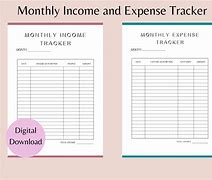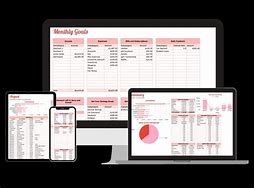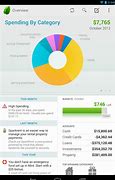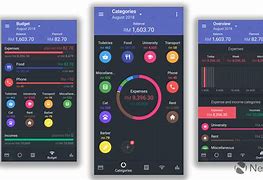Advertisement
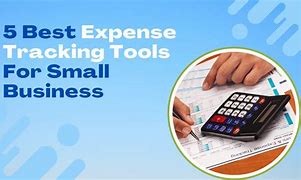
Tracking your small business expenses: It’s not exactly the most exciting part of running your own show, is it? But let’s be real, it’s absolutely crucial. Without a solid grasp on where your money’s going, you’re basically flying blind! Imagine trying to navigate a bustling city without a map – terrifying, right? That’s precisely what running a business without proper expense tracking feels like. You might think you’re doing okay, but are you really? Are you unknowingly bleeding money? Are those unexpected dips in your bank account leaving you scratching your head?
Finding the right expense tracker can feel like searching for a needle in a haystack, especially with the overwhelming number of options available. Some are overly complicated, some lack essential features, & others simply cost a fortune – definitely not ideal for a small business owner already juggling a million things. That’s why we’ve compiled this list of 5 best expense trackers specifically designed to help small businesses like yours thrive. We’ve done the hard work for you , sifting through the noise to identify the best tools that offer a balance of power, simplicity, & affordability.
Forget messy spreadsheets & confusing manual tracking methods; it’s time to embrace efficiency. These expense trackers aren’t just about recording numbers; they’re your business partners in financial success! They help you identify hidden costs, optimize spending, make better business decisions, & ultimately – boost your profitability. They might not brew your morning coffee , but they’ll save you hours of frustrating accounting work, and let’s face it , who wouldn’t want that? So, are you ready to ditch the financial guesswork & take control of your small business finances? Let’s dive in and explore these top-notch expense tracking solutions – get ready to say hello to a clearer financial picture & goodbye to money-draining mysteries! We’ve got something for everyone, from basic users to accounting gurus , so keep reading! What are you waiting for? Your financial future awaits . This is it , your chance to conquer expense tracking and see just how impactful these tools truly are! Are you ready to unlock your business’s full financial potential? Then read on! You won’t regret it .
5 Best Expense Trackers for Small Businesses: Conquer Your Finances!
Running a small business is thrilling, but managing finances can feel overwhelming. One key to success? Effective expense tracking. This guide explores the five best expense trackers for small businesses in 2024, helping you conquer your finances and focus on growth.
What is an Expense Tracker for Small Businesses?
An expense tracker is software or a system that helps you record, categorize, and analyze your business expenses. It simplifies the process of monitoring where your money is going, providing crucial insights for informed decision-making. Think of it as your business’s financial diary, but far more organized and powerful.
Why is Expense Tracking Crucial for Small Businesses?
Effective expense tracking isn’t just about knowing how much you’re spending; it’s about building a strong financial foundation. Here’s why it’s crucial:
- Avoiding costly tax penalties: Accurate expense tracking is vital for accurate tax filings. Missing deductions or inaccurate reporting can lead to hefty penalties.
- Making informed financial decisions: Clear expense data allows you to understand your spending habits, identify areas of overspending, and make strategic adjustments.
- Identifying areas for cost savings: By analyzing your expenses, you can pinpoint areas where you can cut back without compromising business operations, boosting your bottom line.
- Securing loans and attracting investors: Lenders and investors want to see a well-managed business. Organized financial records, including meticulous expense tracking, demonstrate financial responsibility and increase your chances of securing funding.
- Improving cash flow management: Tracking expenses helps you predict your cash flow, allowing you to anticipate potential shortfalls and plan accordingly. This prevents unexpected financial crises.
- Tracking profitability and business growth: Monitoring expenses alongside revenue allows you to accurately assess your profitability and track your business’s growth over time.
What Features Should a Good Small Business Expense Tracker Have?
A top-notch expense tracker should offer several key features:
- Simple and intuitive interface: The software should be easy to navigate and use, even for those without extensive accounting experience.
- Mobile accessibility (app or web-based): The ability to access and update your expense records on the go is a must for busy entrepreneurs.
- Integration with accounting software: Seamless integration with your accounting software streamlines your workflow and minimizes data entry.
- Customizable categories and reporting: The ability to create custom expense categories and generate tailored reports is essential for detailed analysis.
- Secure data storage and privacy: Your financial data is sensitive; choose a tracker with robust security measures to protect it.
- Receipt capture and organization: Features that allow you to easily upload and organize receipts are incredibly helpful for accurate record-keeping.
- Multi-user access: If you have employees handling expenses, multi-user access allows for collaboration and control.
- Expense forecasting and budgeting tools: These tools help you plan your spending, set budgets, and monitor progress toward your financial goals.
Top 5 Best Expense Trackers for Small Businesses in 2024
Here are five of the best expense trackers available, catering to different needs and budgets:
#1: Xero – Powerful Accounting and Expense Tracking
Xero is a comprehensive accounting software with robust expense tracking capabilities. It offers features like automatic bank reconciliation, customizable expense reports, and integration with various apps.
- Pricing: Xero offers various plans to suit different business sizes and needs.
- Pros: Powerful features, excellent integration, mobile-friendly.
- Cons: Can be more expensive than some alternatives, steeper learning curve for beginners.
#2: QuickBooks Self-Employed – Simple and Easy-to-Use
QuickBooks Self-Employed is a user-friendly option ideal for freelancers and solopreneurs. It simplifies tax preparation with features like mileage tracking and automated income and expense categorization.
- Pricing: Offers affordable monthly subscriptions.
- Pros: Easy to use, great for self-employed individuals, integrates with other Intuit products.
- Cons: Fewer features compared to Xero, might not be suitable for larger businesses with complex accounting needs.
#3: FreshBooks – Invoice and Expense Management Combined
FreshBooks combines invoicing and expense tracking in one platform, making it a convenient solution for managing both sides of your business finances. It’s known for its user-friendly interface and excellent customer support.
- Pricing: Offers various plans catering to different business sizes.
- Pros: User-friendly, strong invoicing capabilities, excellent customer support.
- Cons: Some advanced features might require upgrading to a higher-tier plan.
#4: Zoho Expense – Robust Expense Management for Teams
Zoho Expense is a powerful solution ideal for businesses with multiple employees. It offers features like expense policy enforcement, automated approvals, and detailed reporting.
- Pricing: Offers a free plan with limited features and various paid plans for larger teams.
- Pros: Robust features for larger teams, strong policy enforcement capabilities, detailed reporting.
- Cons: The free plan has limitations, might be overkill for solopreneurs or very small businesses.
#5: Wave Accounting – Free and Feature-Rich Option
Wave Accounting is a popular choice for businesses looking for a free and feature-rich expense tracker. While it offers a free plan, it also has paid options for additional features like payroll.
- Pricing: Offers a generous free plan with core features. Paid options available for advanced features.
- Pros: Free plan with substantial features, user-friendly interface.
- Cons: Limited customer support on the free plan, some features might be limited compared to paid options.
Choosing the Best Business Expense Tracker for YOUR Needs
Selecting the right expense tracker depends on several factors:
- Budget and pricing: Consider your budget and choose a plan that aligns with your financial capacity.
- Business size and complexity: The complexity of your business operations will influence the features you need.
- Number of employees: If you have employees handling expenses, a system with multi-user access is crucial.
- Integration with existing software: Ensure the tracker integrates seamlessly with your current accounting and other business software.
- Ease of use and learning curve: Choose a tracker that’s intuitive and easy to learn, especially if you’re not an accounting expert.
- Reporting and analytics capabilities: The ability to generate detailed reports and insightful analytics is essential for informed decision-making.
Free vs. Paid Expense Trackers: Which is Right for You?
Free Expense Trackers:
- Pros: Cost-effective, good for startups or businesses with minimal financial transactions.
- Cons: Limited features, potentially less robust security, limited customer support.
Paid Expense Trackers:
- Pros: More features, enhanced security, better customer support, often offer better integrations.
- Cons: Recurring costs.
When to Upgrade: As your business grows and your financial needs become more complex, upgrading to a paid plan may be necessary.
Tips for Effective Expense Tracking for Small Businesses
Best Practices for Accurate Expense Reporting:
- Importance of detailed records: Maintain detailed records of all expenses, including dates, descriptions, and receipts.
- Categorizing expenses effectively: Use a consistent categorization system to track expenses accurately.
- Regularly reconciling accounts: Regularly compare your expense records with your bank statements to identify any discrepancies.
- Utilizing receipt scanning apps: Use receipt scanning apps to digitize your receipts and organize them efficiently.
- Setting up a robust expense policy: Create a clear expense policy for your employees to ensure consistent and accurate reporting.
Common Mistakes to Avoid When Tracking Business Expenses:
- Mixing personal and business expenses: Keep your personal and business finances strictly separate.
- Inaccurate record-keeping: Ensure your records are accurate and up-to-date.
- Neglecting to track small expenses: Even small expenses add up; track everything.
- Failing to categorize expenses appropriately: Use a consistent and logical categorization system.
- Not backing up data regularly: Regularly back up your expense data to prevent data loss.
Conclusion: Mastering Your Small Business Finances with the Right Expense Tracker
Choosing the right expense tracker is a crucial step in managing your small business finances effectively. By utilizing a well-chosen expense tracker and following best practices, you’ll gain valuable insights, streamline your accounting, and ultimately boost your chances of success. Remember to consider your specific needs and budget when making your decision. Conquer your finances and watch your business thrive!
